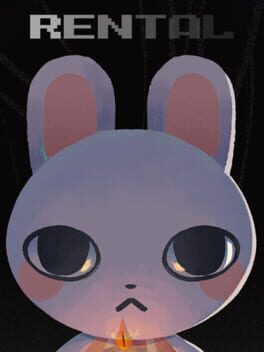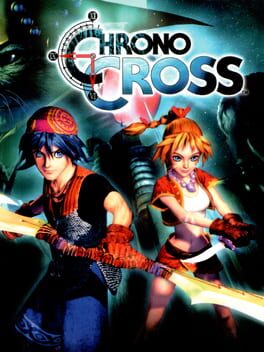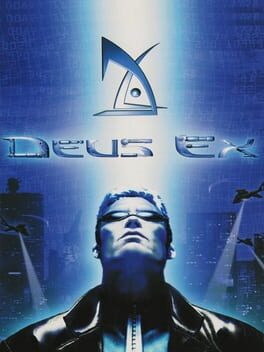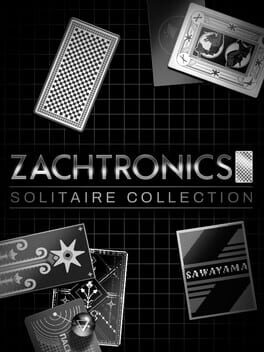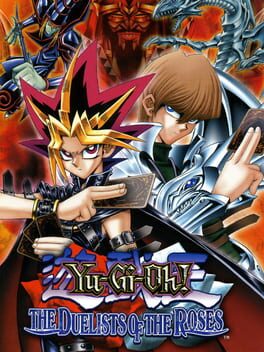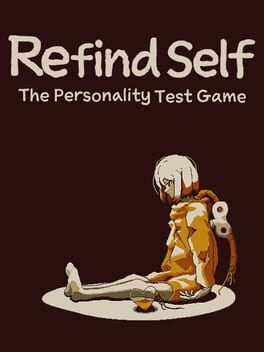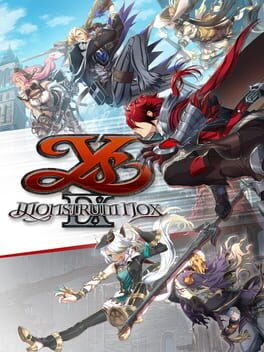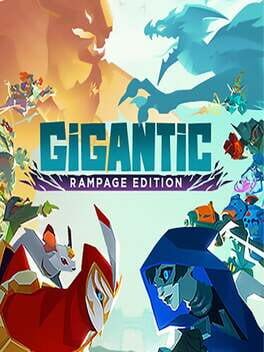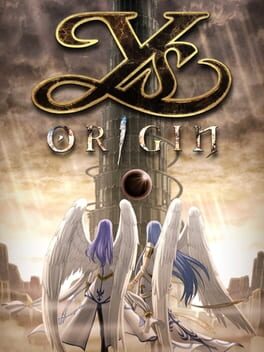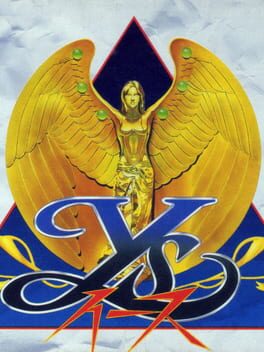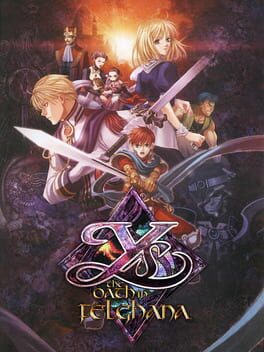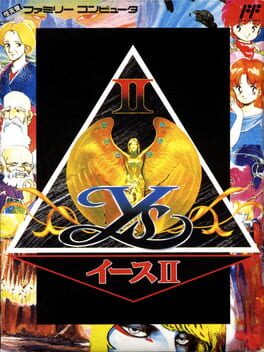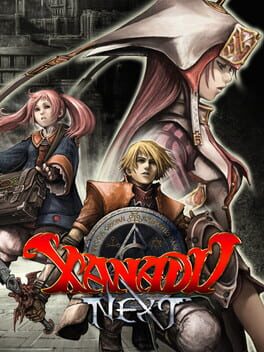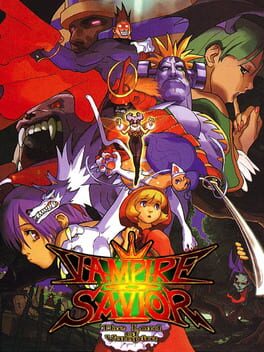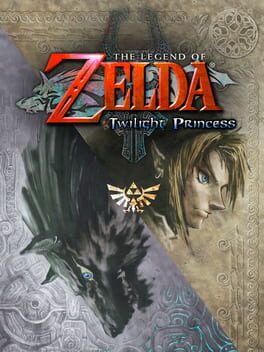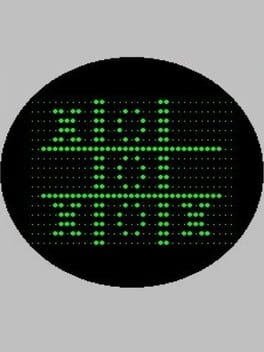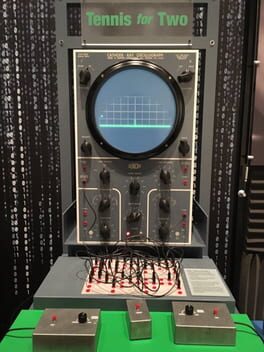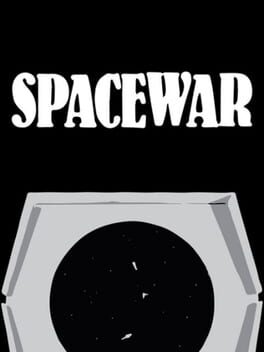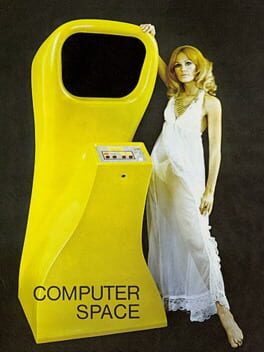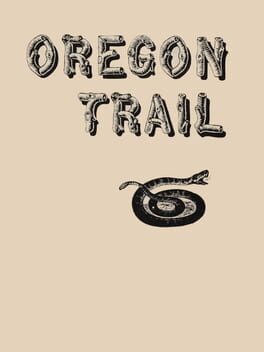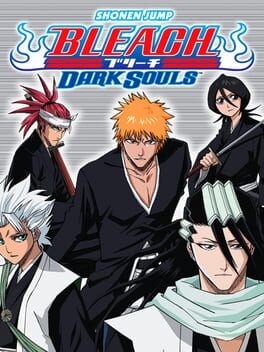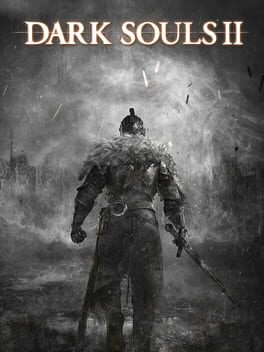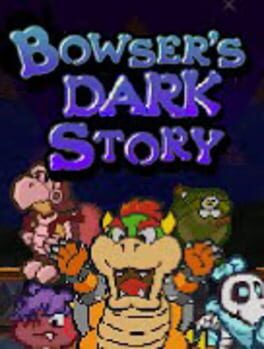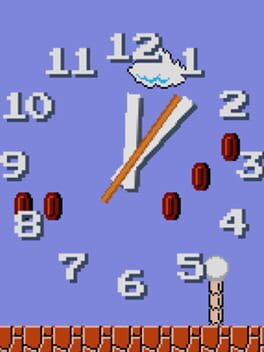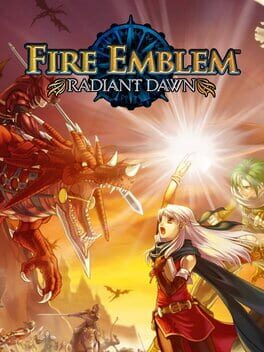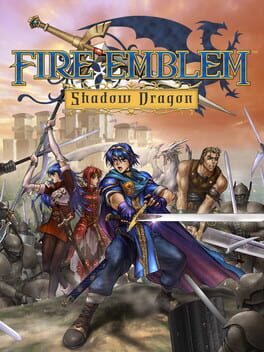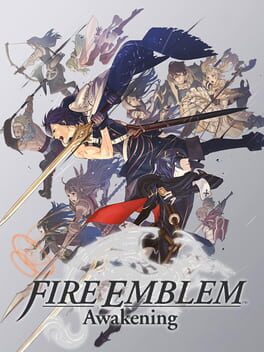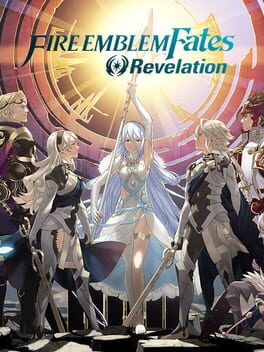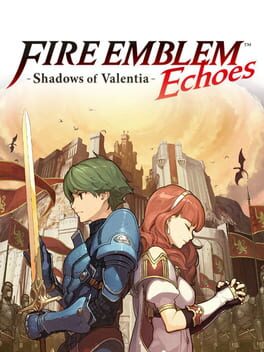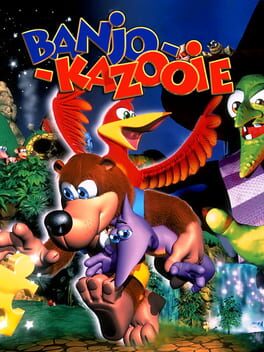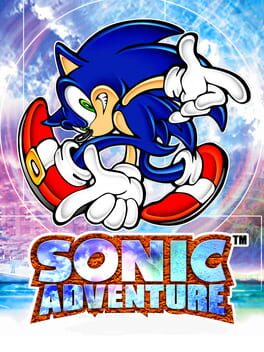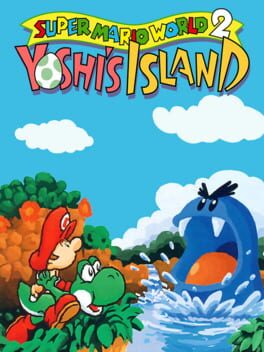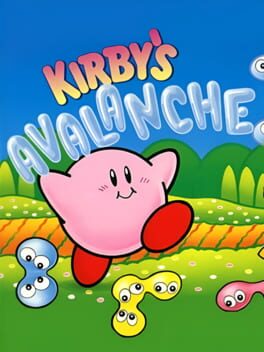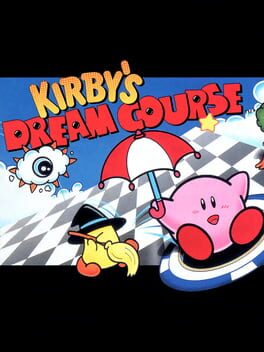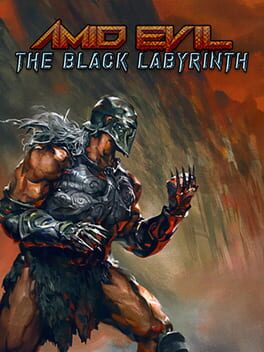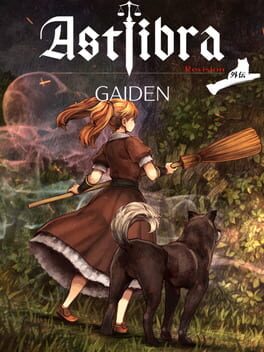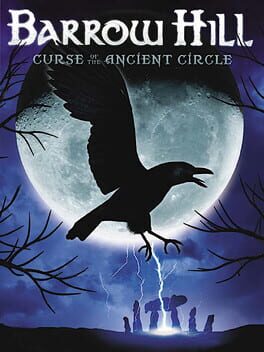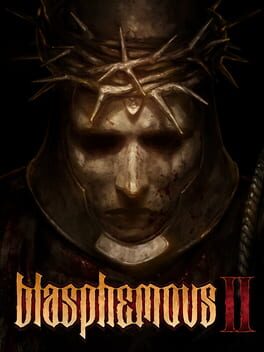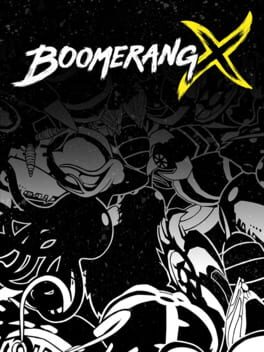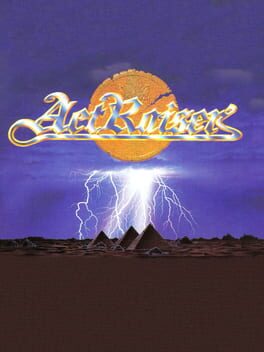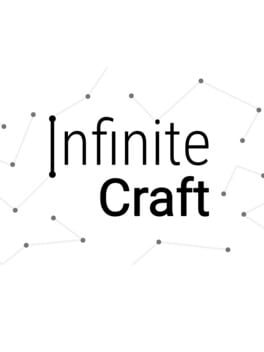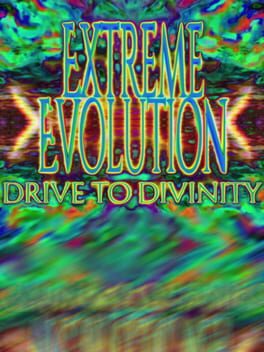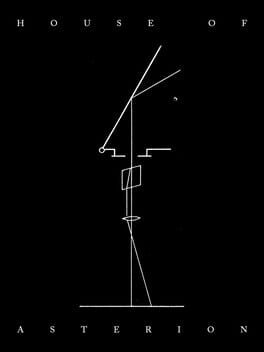faea
498 reviews liked by faea
Rental
2022
Visually pretty, short little game jam project. Like most of it's kind, Rental is a little rough around the edges but the idea and presentation is strong, I kind of wish it was a full game- or at least extended somewhat with more structure- but that's how these event games usually tend to go. But otherwise, its pretty cute (and free), a perfectly harmless way to kill a few minutes.
Chrono Cross
1999
initially was going to convey this in a meaner, snarkier way for the bit but with how this game tied into trigger closer to the end i decided not to. the game is not subtle about how it feels having to follow up a dream team project like trigger and a certain set of characters basically have to refrain themselves from explicitly saying serge ruined chrono trigger, and because of that i would honestly feel kind of bad bringing that kind of attitude with this review. regardless, while i played chrono cross, the main thought that went through my head was "how is it that people thought cross didn't live up to trigger rather than the other way around?" but as i finished the game and write this review i feel as though cross didn't need to live up to trigger and that hinging its value on whether or not it does is a very childish way of looking at things.
to me, chrono trigger is a game that is held back by how near perfect it is. there's so little wrong with it that at least to me nothing really stands out anymore. there's nothing to grab onto, no imperfections to make it feel "complete" to me and as such i feel as though its reverence, while not necessarily misplaced, is harder for me to grasp because to me a "perfect" game without imperfections, as contradictory as it sounds, will never be perfect to me. meanwhile, chrono cross i found to be an amazing, thought provoking, mesmerizing game that pushed the playstation to its limits aesthetically, a game with so much to say about what it means to live and exist, what it means to dream. chrono cross is messy and imperfect in such beautiful ways, it knows its following up chrono trigger and while it still intends to be a continuation of a work like trigger it doesn't care what kind of shadow its living in and intends to be its own experience, flaws and all.
whether or not it lives up to chrono trigger is irrelevant, the arguments surrounding such are just attempts at insecure and childish posturing because these games, while connected are so different that its hardly worth comparing in that sense. i understand that nothing exists in a vacuum, let alone a sequel, but maybe it would do some people a lot of good to both understand the context of something like chrono cross while also letting it be its own experience.
to me, chrono trigger is a game that is held back by how near perfect it is. there's so little wrong with it that at least to me nothing really stands out anymore. there's nothing to grab onto, no imperfections to make it feel "complete" to me and as such i feel as though its reverence, while not necessarily misplaced, is harder for me to grasp because to me a "perfect" game without imperfections, as contradictory as it sounds, will never be perfect to me. meanwhile, chrono cross i found to be an amazing, thought provoking, mesmerizing game that pushed the playstation to its limits aesthetically, a game with so much to say about what it means to live and exist, what it means to dream. chrono cross is messy and imperfect in such beautiful ways, it knows its following up chrono trigger and while it still intends to be a continuation of a work like trigger it doesn't care what kind of shadow its living in and intends to be its own experience, flaws and all.
whether or not it lives up to chrono trigger is irrelevant, the arguments surrounding such are just attempts at insecure and childish posturing because these games, while connected are so different that its hardly worth comparing in that sense. i understand that nothing exists in a vacuum, let alone a sequel, but maybe it would do some people a lot of good to both understand the context of something like chrono cross while also letting it be its own experience.
Deus Ex
2000
Finished my replay of this game on hard mode. There wasn't much of a difference with normal except that obviously you take fewer hits before you go down. Perhaps one day I'll play on realistic but something tells me that will cross the line into being annoying for my playstyle.
If you've followed me for a while or even if you've been in the same room as me for more than 15 minutes you might now that I despise stealth games. I've tried, but I genuinely hate them all. MGS, Thief, Dishonored, even stealth sections in games I like (shenmue, max payne, disaster report 4). I've had bad luck with so called Immersive Sims because of it, as most of them are essentially stealth arpg hybrids like Deus Ex, but so far its basically only the OG (and consortium by virtue of not having stealth) that I mess with. Its not exactly a mystery why, and consider this a plea for other games to follow suit : let me murder everyone. Give me an actual choice between stealth and combat and not just stealth and "you fucked up the stealth you idiot! you might as well reload a save"
Importantly, Deus Ex's combat is deceptively fun to get to grips with. Its so simple but really effective the way that you start out as someone who takes 2 business days to line up a pistol shot to being able to run around with the gep gun blowing people up like nothing. I'm surprised no one else has tried emulating the system, with your RPG esque weapon stats determining how fast your crosshair takes to narrow and become fully accurate, presumably imitating how it takes someone to aim down the sights and prepare to fire a shot.
Now, obviously for this kind of game there has to be push back, and even with a combat build your ass is not going to last if you're trying to play the game like half life, which is precisely why its satisfying to completely forgo stealth and murder everyone through traps, ambushes etc. This playthrough I discovered how useful the non lethal gas grenades are for murder runs (ironically) cause it makes enemies freeze up to rub their eyes, lining up to get headshot with the pistol for maximum murder efficiency.
The playthrough did however highlight Deus Ex's biggest flaw : the save system. Its one of those systems which is simultaneously too annoying and too forgiving. Its annoying because I am forgetful, and losing 15 mins of progress because I forgot to save is just... frustrating. On the other hand, there is basically nothing stopping you from hardcore save scumming every 5 seconds. Ironically, there is nothing more appropriately "mean" for a choice based rpg than an aggressive auto save, as it is, you can basically game most of the big decisions and encounters. Maybe even a save room system like RE4 might be appropriate? Could even lock them behind doors with an interesting weighing up of resources if its worth risking a loss of progress for a lockpick or multitool? Idk now Im playing armchair designer but either way.
Area 51 is still kinda annoying, I didnt use console commands to noclip through it this time but I still fused with Helios because it was the fastest way to complete the level, the later bits of the game are kind of a downgrade from the initial half of the game.
If you've followed me for a while or even if you've been in the same room as me for more than 15 minutes you might now that I despise stealth games. I've tried, but I genuinely hate them all. MGS, Thief, Dishonored, even stealth sections in games I like (shenmue, max payne, disaster report 4). I've had bad luck with so called Immersive Sims because of it, as most of them are essentially stealth arpg hybrids like Deus Ex, but so far its basically only the OG (and consortium by virtue of not having stealth) that I mess with. Its not exactly a mystery why, and consider this a plea for other games to follow suit : let me murder everyone. Give me an actual choice between stealth and combat and not just stealth and "you fucked up the stealth you idiot! you might as well reload a save"
Importantly, Deus Ex's combat is deceptively fun to get to grips with. Its so simple but really effective the way that you start out as someone who takes 2 business days to line up a pistol shot to being able to run around with the gep gun blowing people up like nothing. I'm surprised no one else has tried emulating the system, with your RPG esque weapon stats determining how fast your crosshair takes to narrow and become fully accurate, presumably imitating how it takes someone to aim down the sights and prepare to fire a shot.
Now, obviously for this kind of game there has to be push back, and even with a combat build your ass is not going to last if you're trying to play the game like half life, which is precisely why its satisfying to completely forgo stealth and murder everyone through traps, ambushes etc. This playthrough I discovered how useful the non lethal gas grenades are for murder runs (ironically) cause it makes enemies freeze up to rub their eyes, lining up to get headshot with the pistol for maximum murder efficiency.
The playthrough did however highlight Deus Ex's biggest flaw : the save system. Its one of those systems which is simultaneously too annoying and too forgiving. Its annoying because I am forgetful, and losing 15 mins of progress because I forgot to save is just... frustrating. On the other hand, there is basically nothing stopping you from hardcore save scumming every 5 seconds. Ironically, there is nothing more appropriately "mean" for a choice based rpg than an aggressive auto save, as it is, you can basically game most of the big decisions and encounters. Maybe even a save room system like RE4 might be appropriate? Could even lock them behind doors with an interesting weighing up of resources if its worth risking a loss of progress for a lockpick or multitool? Idk now Im playing armchair designer but either way.
Area 51 is still kinda annoying, I didnt use console commands to noclip through it this time but I still fused with Helios because it was the fastest way to complete the level, the later bits of the game are kind of a downgrade from the initial half of the game.
Final Fantasy IX
2000
I picked up Shenzhen Solitaire by Zachtronics a couple years ago and didn't think much of it. I played it a little and found it confusing and arcane. My mind couldn't think or plan ahead the way the game needed you to, and I got frustrated having to reset constantly.
For a long time I have struggled with feelings of inadequacy, in all aspects of my life. What is self-worth when you have so little with which to define one's self? The kind of destructive thinking that informs anything and everything you do. I have 3000+ hours on Paladins. More than half of that time I have probably spent frustrated- about my aim, my KDA, my game sense and knowledge. Constantly checking the stat trackers, getting discouraged that I can never be like the good players.
Shenzhen Solitaire has a way of sneaking up on you, as you sit there resetting the board. I got into the habit of clicking and slightly dragging a card over and over as I scan the board for possible routes, the way someone might shuffle or fidget with a physical deck of cards. The same droning ambient loop plays in perpetuity, to this day I don't even know if I really even like it. But I could listen to that loop for hours, and I did end up listening to it for hours. Turning it off was weird- the silence actually felt deafening.
Getting my first win was a revelatory moment, cause I had probably lost 50-100 times before I finally cleared the board. The feeling of accomplishment may have been the closest I had gotten to self-actualization in a long time. I have these moments of hyperfixation my entire life. They all matter to me in different ways, but solitaires a bit different. I felt like I was clearing cobwebs in my brain through constant iteration. I felt satisfied, and I realized I had stopped getting frustrated a long time ago. Awhile later, I reached 20 wins, and it clicked for me why it was working so well for me. It's because I was feeling, for a brief moment in the whirlwind of life, like I was actually at peace.
There's a lot of writing out there on what makes solitaire so compelling. Francine Prose wrote in Solitaire: Me vs. Me the following: "Like writing, it’s entirely private, the exertion is purely cerebral; you’re playing against yourself, against your previous best, against the law of averages and the forces of chance. You’re taking random elements and trying to put them together in a pleasing way, to make order out of chaos."
As I sit there, fighting against both my brain and the board state, I finally make a move that allows me to sort out an entire pile. I feel a feeling of elation that video games very rarely give me anymore. Its as if my thoughts have decayed by the constant low-level dread of depression, and I have sunk into the worst kinds of maladaptive coping mechanism. Competitive online gaming gave me an outlet to let out frustration and anxiety, but I rarely was feeling good whether I won or I lost. I was always on-edge, always annoyed at something. Even the act of running the game itself became a source of anxiety. Researching monitors, FPS optimizations, mouse polling rates and DPI. Everything felt like a constant tightrope and I think to myself, when did this stop being a game? When did I stop having fun doing this?
Zachtronics Solitaire Collection has allowed me a calm respite in the storm of my thoughts- a world in which I can both relax and challenge myself in a healthy manner. While regular Freecell and Klondike solitaire are very simple conceptually, they provide a solid blueprint for creatives to remix into extremely deep play experiences.Fortune's Foundation, with its beautiful tarot cards and complicated ruleset, is a particular standout. It has so many possible fail states that Zach included an Undo button, which is somewhat of a rarity in the popular Solitaire-likes. Even with the option, it's such a difficult game that I have yet to clear it. I have gotten close- so tantalizingly close- only to realize an action I made 50 moves ago has painted me in a corner. I realize it, I note where I went wrong, I reset, and I try again.
I think it has taught me to deal with failure in a far more healthy way. I come from a career field where making a mistake is met with open hostility, and I make many mistakes. It's so easy to internalize failure in the immediate moment as an inherent failing of either the self or others. In the smorgasboard of sight and sound that is competitive gaming, where its so easy to tie your self-worth with your mechanical skill, it becomes natural to spiral into the worst impulses.
The repetitive, calming nature of solitaire has become a therapeutic exercise for me, in ways I mostly imagined games to be. I long called gaming my coping mechanism- but it was hardly anything like that. Being able to find an experience like this, in solitude, has made all the difference for me. Gaming is a personal experience, as all art is. So what makes something like a standard deck of cards into a meditative gaming experience is just that.
In Solitaire, all that awaits failure is the humdrum ambience of the background and the opportunity to reset the board and try again. In solitude, I learned to center myself in the moment rather than allow my anxiety to consume my every thought. In solitude, I learned to give myself a chance.
For a long time I have struggled with feelings of inadequacy, in all aspects of my life. What is self-worth when you have so little with which to define one's self? The kind of destructive thinking that informs anything and everything you do. I have 3000+ hours on Paladins. More than half of that time I have probably spent frustrated- about my aim, my KDA, my game sense and knowledge. Constantly checking the stat trackers, getting discouraged that I can never be like the good players.
Shenzhen Solitaire has a way of sneaking up on you, as you sit there resetting the board. I got into the habit of clicking and slightly dragging a card over and over as I scan the board for possible routes, the way someone might shuffle or fidget with a physical deck of cards. The same droning ambient loop plays in perpetuity, to this day I don't even know if I really even like it. But I could listen to that loop for hours, and I did end up listening to it for hours. Turning it off was weird- the silence actually felt deafening.
Getting my first win was a revelatory moment, cause I had probably lost 50-100 times before I finally cleared the board. The feeling of accomplishment may have been the closest I had gotten to self-actualization in a long time. I have these moments of hyperfixation my entire life. They all matter to me in different ways, but solitaires a bit different. I felt like I was clearing cobwebs in my brain through constant iteration. I felt satisfied, and I realized I had stopped getting frustrated a long time ago. Awhile later, I reached 20 wins, and it clicked for me why it was working so well for me. It's because I was feeling, for a brief moment in the whirlwind of life, like I was actually at peace.
There's a lot of writing out there on what makes solitaire so compelling. Francine Prose wrote in Solitaire: Me vs. Me the following: "Like writing, it’s entirely private, the exertion is purely cerebral; you’re playing against yourself, against your previous best, against the law of averages and the forces of chance. You’re taking random elements and trying to put them together in a pleasing way, to make order out of chaos."
As I sit there, fighting against both my brain and the board state, I finally make a move that allows me to sort out an entire pile. I feel a feeling of elation that video games very rarely give me anymore. Its as if my thoughts have decayed by the constant low-level dread of depression, and I have sunk into the worst kinds of maladaptive coping mechanism. Competitive online gaming gave me an outlet to let out frustration and anxiety, but I rarely was feeling good whether I won or I lost. I was always on-edge, always annoyed at something. Even the act of running the game itself became a source of anxiety. Researching monitors, FPS optimizations, mouse polling rates and DPI. Everything felt like a constant tightrope and I think to myself, when did this stop being a game? When did I stop having fun doing this?
Zachtronics Solitaire Collection has allowed me a calm respite in the storm of my thoughts- a world in which I can both relax and challenge myself in a healthy manner. While regular Freecell and Klondike solitaire are very simple conceptually, they provide a solid blueprint for creatives to remix into extremely deep play experiences.Fortune's Foundation, with its beautiful tarot cards and complicated ruleset, is a particular standout. It has so many possible fail states that Zach included an Undo button, which is somewhat of a rarity in the popular Solitaire-likes. Even with the option, it's such a difficult game that I have yet to clear it. I have gotten close- so tantalizingly close- only to realize an action I made 50 moves ago has painted me in a corner. I realize it, I note where I went wrong, I reset, and I try again.
I think it has taught me to deal with failure in a far more healthy way. I come from a career field where making a mistake is met with open hostility, and I make many mistakes. It's so easy to internalize failure in the immediate moment as an inherent failing of either the self or others. In the smorgasboard of sight and sound that is competitive gaming, where its so easy to tie your self-worth with your mechanical skill, it becomes natural to spiral into the worst impulses.
The repetitive, calming nature of solitaire has become a therapeutic exercise for me, in ways I mostly imagined games to be. I long called gaming my coping mechanism- but it was hardly anything like that. Being able to find an experience like this, in solitude, has made all the difference for me. Gaming is a personal experience, as all art is. So what makes something like a standard deck of cards into a meditative gaming experience is just that.
In Solitaire, all that awaits failure is the humdrum ambience of the background and the opportunity to reset the board and try again. In solitude, I learned to center myself in the moment rather than allow my anxiety to consume my every thought. In solitude, I learned to give myself a chance.
I love this dev. They come up with such smart and high concept ideas, and though this didnt hit in the way 7 Days did for me, I still enjoyed the time I spent with it. Normally, personality tests as a concept are something I don't particularly subscribe to (especially as a gameplay format), but in the case of Refind Self it works incredibly well. Playing as an android, simultaneously teaching her humanity while also exercising your own freedom of choice is a very endearing route of storytelling. The grief and kindness expressed through the options you chose, the limited amount of time you have to play reflecting the wind-up android's existence... as seems to always be the case, this dev is very careful and smart in the way they go about presenting their world. I love their artstyle, love the philosophy behind it. The only thing I could say these games lack is music, as each only has a few tracks (few meaning 2 or 3) that don't loop especially well. Highly suggest this dev's catalog for anyone looking for a unique and short, lovingly crafted experience. Really excited to see what they put out next ☆
Ys IX: Monstrum Nox
2019
There's a story beat in Ys IX: Monstrum Nox where the large Pendleton company, the major employer within the city, has systematically disenfranchised the people of shantytown situated alongside the literal sewers. There's a chivalrous Robin Hood-esque figure who steals from the Pendleton company and gives to the poor residents, and the game's message is to admonish this figure for doing so by showing multiple scenes of the poor people being lazy and indolent and wasting the assistance on booze. The ending to this particular subplot is so blatant as to be insulting - the solution is to start your own business and show the rest of peasantry that you can climb out of the sewers with hard work (and perhaps some generous private subsidies). This is the product of Japanese sociocultural attitudes toward capitalism, much like its partners in the West. Poverty is treated as an individualist issue, one inextricably tied to moral fundamentalism. You're poor because you have bad habits. I'm rich because I work hard. It's worse than garbage writing, its some of the most irresponsible neoliberal wankery I have ever had the misfortune of experiencing. Game sucks.
If Valorant represents the hero shooter at one extreme, Gigantic sits at the other: it is primarily a MOBA with shooter elements, more in a line with a traditional League of Legends or DoTA 2 experience than anything like Overwatch, Paladins or Apex Legends. Because of the massive burst damage and CC potential of the melee units, you get that tight negotation of space so emblematic of traditional MOBAs: players engaging in passive stare downs, waiting for the slightest perceptible opening to pounce. A high stakes game of chicken where there is just a hairs breadth between "overextending" into certain death or confirming a kill. In contrast, the ranged characters play and feel like your more traditional hero shooter fare, but the power that would come with so much map control has been heavily nerfed to compensate. Primary fire damage is low, time to kill is obscenely high, and everything revolves around disengagement and cooldowns. There's no creeps to farm, but the movement and mechanics are undoubtedly MOBA.
But these concepts don't translate as well as they probably should. I noted it in this game's Korean cousin, Storm Strikers, as well; this game's readability is complete trash. The time to kill being so high, you just get a crowd of characters wailing on eachother, spamming cooldowns with very little thought. Bright colors flash all over the screen, giant AOES of no discernible origin cover the ground, and giant white letters pop up to say "FROZEN. ARMOR BROKEN. SLOWED. POISONED. VOID GRIPPED." It's just graphical vomit, the kind people will tell you "Don't worry bro, it all makes sense after 1000 hours bro, I swear bro." Be that as it may, the problem with these games is player retention, and it doesn't have the benefit of the older MOBAs long-running communities to fall back on. New players are not going to know what is killing them, how fast and why. It might be novel while everyone plays with the new toy; but as the playerbase wanes and the skill gap widens this is going to be a problem. Just ask Storm Strikers with its 10 daily players.
As a long time player of these titles, I know good concepts when I see them, and Gigantic has some really strong points in its favor. The game has great pacing in the current "Rush" mode and I feel like it rewards both game sense and high mechanical skill equitably. I can see why this game had a diehard community, and it's satisfying to see these players get their game back in the era of GaaS. Many of my favorite MOBAs and hero shooters are gone for good, casualties of a mix of bad marketing and corporate greed. I never even got to play Gigantic before it got hit with the end of service announcement. Now that I've finally played it, I can see both why its loved and why it was canned.
Games like this need to focus on player retention, especially if they are paid titles. So the developers undoubtedly have their work cut out for them. Framerate optimization, server stability and UI fixes stand out as the most important pain points; but the new user onboarding has to also be drastically improved. Then it is a matter of making sure those players stay onboard- and the answer is never a battle pass or balance patches. What we need to see out of Gigantic is alternate ways to play the game- as these sorts of options are appeal to casual userbases. Different gamemodes are an important part of the hero shooter ecosystem because they allow for healthier player seperation. Let the tryhards dominate modes with more competitive depth, but give the normal players a low-stakes gamemode where they can just relax and turn their brains off.
As it is, Gigantic feels doomed to fail, but all hope is not lost if the developers have been paying as close attention to the industry as the players have.
But these concepts don't translate as well as they probably should. I noted it in this game's Korean cousin, Storm Strikers, as well; this game's readability is complete trash. The time to kill being so high, you just get a crowd of characters wailing on eachother, spamming cooldowns with very little thought. Bright colors flash all over the screen, giant AOES of no discernible origin cover the ground, and giant white letters pop up to say "FROZEN. ARMOR BROKEN. SLOWED. POISONED. VOID GRIPPED." It's just graphical vomit, the kind people will tell you "Don't worry bro, it all makes sense after 1000 hours bro, I swear bro." Be that as it may, the problem with these games is player retention, and it doesn't have the benefit of the older MOBAs long-running communities to fall back on. New players are not going to know what is killing them, how fast and why. It might be novel while everyone plays with the new toy; but as the playerbase wanes and the skill gap widens this is going to be a problem. Just ask Storm Strikers with its 10 daily players.
As a long time player of these titles, I know good concepts when I see them, and Gigantic has some really strong points in its favor. The game has great pacing in the current "Rush" mode and I feel like it rewards both game sense and high mechanical skill equitably. I can see why this game had a diehard community, and it's satisfying to see these players get their game back in the era of GaaS. Many of my favorite MOBAs and hero shooters are gone for good, casualties of a mix of bad marketing and corporate greed. I never even got to play Gigantic before it got hit with the end of service announcement. Now that I've finally played it, I can see both why its loved and why it was canned.
Games like this need to focus on player retention, especially if they are paid titles. So the developers undoubtedly have their work cut out for them. Framerate optimization, server stability and UI fixes stand out as the most important pain points; but the new user onboarding has to also be drastically improved. Then it is a matter of making sure those players stay onboard- and the answer is never a battle pass or balance patches. What we need to see out of Gigantic is alternate ways to play the game- as these sorts of options are appeal to casual userbases. Different gamemodes are an important part of the hero shooter ecosystem because they allow for healthier player seperation. Let the tryhards dominate modes with more competitive depth, but give the normal players a low-stakes gamemode where they can just relax and turn their brains off.
As it is, Gigantic feels doomed to fail, but all hope is not lost if the developers have been paying as close attention to the industry as the players have.
Demon's Souls
2009
January 2022 I played Dark Souls 2 : Scholar of the first sin for the first time, it took a while to click but eventually I fell in love with it and the series as a whole.
April 2024 It is with a heavy heart that I must face facts : I cannot play these games anymore. A similar thing has happened to me before, in 2022 I had the same realization about the total war games, but I have since been able to replay them a few years later. So I'd like to say its not "goodbye souls" but "see you later souls". I've simply grown too used to them, as replayable as they are, there is just nothing to excite me anymore. I will note however, that demons' souls was the last holdout.
Admittedly, this is probably less due to Demons' Souls' qualities than it is to the fact that I have done fewer runs of it than DS1 and 2 which I have played to death, by virtue of having to get my ps3 out of storage to play it, but nevertheless I find myself thinking about IT in particular lately.
Spoilers for Demons Souls I guess
The last time I played it I felt like the protagonist of Shadows over Insmouth or even 1984 when the cosmic horror hit as I made my way through the swamp of sorrows and thought to myself "oh god, I'm actually enjoying this". Miyazaki's psy-op finally got to me, whichever pheromone infused miasma the swamps emanate has made it into my head. Are these thoughts my own anymore? Am I but a vessel for the sacrifice to the great god of toxic swamp water that From Software has built an altar to?
Before any of the Demon Souls superfans get too pleased with their new convert, I think my overall enjoyment of DeS has stayed about the same; case in point I think I fucking hate 1-3 and 1-4. I think DeS strengths lie in atmosphere, in novel challenge revolving around environmental traversal, elemental match-ups, slow, methodical exploration and puzzle bossfights. In terms of straight up combat gauntlets its been utterly left in the dust by later entries, and its my least favourite aspect of the game. My ass also got killed because I accidentally climbed over a railing my rubbing too close to it and jumped into a 3 enemy gank, which felt less like punishing poor awareness and more getting fucked by weird controls. How hard is it to add a button press for mantling over obstacles? Either way, FromSoft abandoned that shit almost inmediately so its nice to know they agree with me.
The Blue dragon fucking sucks. The red dragon as an obstacle in 1-1 and 1-2 works perfectly, thematically and mechanically it serves its role of pseudoboss/setpiece wonderfully. The blue dragon sucks, whether or not you get past his second phase seems more luck to me than anything else given the disconnect between the visual outline and hitbox of his fire breath (especially if you rescue the knight dude) and given he guards the false king, as a player you're going to be seeing him a lot, leaving you to either absolutely master his bullshit timing or do the slow, tedious process of killing him with arrows. I have only ever fought King Allant "honourably" like 2 times maybe, because by the time I get to 1-4 my enthusiasm for DeS has grown thin and the tedium of the dragon and runback occupy such a space in my mind, that I usually just pull out the thief ring + poison cloud cheese combo, and I admit that with 0 shame. Its unfortunate, because the first time I fought King Allant I was legitimately sweating by the end of it, it was an incredible rush of adrenaline, but that fucking dumbass dragon had to fuck it up.
That's kind of DeS' double edged sword. It fucks with you, and dares you to fuck with it back, which is great when you max out health regen items so you can tank the poison and absolutely breeze through the swamp, but less great when you realize the optimum interaction with the world tendency system is to act in such a way that you dont have to engage with it at all i.e kill yourself in the nexus and always go in soul form. I get the logic in body form having the supposed risk/reward of extra health vs the chance to make the entire area harder if you die with it, but the usual obtuseness added to the fact that 25% extra health isn't particularly helpful compared to potentially getting into black world tendency, there isn't much of a choice. The added mechanic of item drop rates going up with black world tendency is also kind of pointless because pure white levels with sub-optimally upgraded weapons are infinitely easier than pure black with maxed out weapons. There's just not much of a choice here. You could argue that maybe there wasnt intended to BE a choice, given that the NPC which explained this mechanic was removed during development, but even as an opaque mechanic it cannot help but incentivise not bothering with it at all. Especially given the focus on cooperation I think they had to have realized people would crack the code on it eventually.
The poise system is weird, in that its an example of a system that is both too punishing and way too forgiving for the player, which is weird. Compared to the later souls games (though admittedly DS1 maybe went a bit too far in making poise OP) it fucks with the usual dynamic of the combat wherein you commit to every attack, both yours and the enemies' being slow and interruptable leading to tense back and forths. In DeS though, there is no poise, just hyper armor given by attacks. This leads to some weirdness. Take the scale miners in world 2. They are extremely tough skinned mindless workers in the mines of boletaria, they are very resistant to slashing damage but vulnerable to magic and pierce (and maybe blunt I think). So you'd think then that they would be able to shrug off any attacks from you and attack uninterrupted. This isnt really the case though, because hyper armor only kicks in during certain frames of attacks, hence if they start their pickaxe attack they are absolutely impossible to interrupt by quick thinking, as the attack has basically 0 windup before it enters the hyper armor phase, but if you hit em before they attack you can absolutely stunlock em into oblivion. The same is true of the blue and red-eyed knights who are way easier than they were likely intended to be because they don't have poise. This is what I mean, its both too punishing (doesnt seem to follow the dynamic of the rest of the combat) and too easy to abuse. The red eye knights in 1-3 are absolute dickheads for this, their charging spear attack can get spammed ad infinitum, with basically 0 cooldown and grants hyper armor. Thankfully I have a bow, but the amount of enemies in 1-3 is one reason why I hate it so much.
But nowhere is this poise problem demonstrated more than with Garl Vinland. Poor garl, serving a corrupt demon without poise. For some reason, of the heavy weapons which get hyper armor in DeS, seemingly the ultra greatswords and his fuck off hammer were excluded, and even if it wasnt easy as hell to parry him / get his hammer to smack the wall harmlessly, his dumbass heavy armor grants him 0 resistance to being stunlocked into oblivion. Compare him to Havel, who can also be cheesed, but at least he shrugs off attacks with a toothpick and hits you with his fuck off hammer regardless.
All that said, I love worlds 2,3 and to a lesser extent 4 and 5. 1-1 and 1-2 are great. Atmosphere and visual design wise they are great treats. I read an article I'll link here which brought up an interesting point I've been thinking about lately, which speaks to DeS' longstanding cult status. In the article they compare the flamelurker design in DeS and its remake, and how the latter looks like "artstation fire demon", which is harsh but kind of true. Its what you make when a director asks you for a fire demon, and if there is something that defines DeS I think, its that it embodies the opposite, for good and for ill. The vanguard demon, the storm king, maiden astraea, phalanx even, these all subvert usual genre expectations and give something rather unique without feeling try-hard. Everything else about its design from its mechanics to the art all seem to follow the rule of not just doing the obvious, the easy, the straightforward.
Think about the tutorial, where after maybe defeating the vanguard demon (which again, is not the type of enemy one would usually put as a beginner boss, both in its lethality and slight goofiness of the design) you are taken to an area with some loot and then are put in front of a giant humanoid dragon, who kills you not by breathing fire and melting you (i.e what you would expect) but by hitting you with a big old punch.
So all my complaints aside, I have to respect Demons' Souls, and if I manage to get back into souls at some point in the future, I hope I get to enjoy being brainwashed into liking 5-2 again. And despising that fucking dragon asshole.
April 2024 It is with a heavy heart that I must face facts : I cannot play these games anymore. A similar thing has happened to me before, in 2022 I had the same realization about the total war games, but I have since been able to replay them a few years later. So I'd like to say its not "goodbye souls" but "see you later souls". I've simply grown too used to them, as replayable as they are, there is just nothing to excite me anymore. I will note however, that demons' souls was the last holdout.
Admittedly, this is probably less due to Demons' Souls' qualities than it is to the fact that I have done fewer runs of it than DS1 and 2 which I have played to death, by virtue of having to get my ps3 out of storage to play it, but nevertheless I find myself thinking about IT in particular lately.
Spoilers for Demons Souls I guess
The last time I played it I felt like the protagonist of Shadows over Insmouth or even 1984 when the cosmic horror hit as I made my way through the swamp of sorrows and thought to myself "oh god, I'm actually enjoying this". Miyazaki's psy-op finally got to me, whichever pheromone infused miasma the swamps emanate has made it into my head. Are these thoughts my own anymore? Am I but a vessel for the sacrifice to the great god of toxic swamp water that From Software has built an altar to?
Before any of the Demon Souls superfans get too pleased with their new convert, I think my overall enjoyment of DeS has stayed about the same; case in point I think I fucking hate 1-3 and 1-4. I think DeS strengths lie in atmosphere, in novel challenge revolving around environmental traversal, elemental match-ups, slow, methodical exploration and puzzle bossfights. In terms of straight up combat gauntlets its been utterly left in the dust by later entries, and its my least favourite aspect of the game. My ass also got killed because I accidentally climbed over a railing my rubbing too close to it and jumped into a 3 enemy gank, which felt less like punishing poor awareness and more getting fucked by weird controls. How hard is it to add a button press for mantling over obstacles? Either way, FromSoft abandoned that shit almost inmediately so its nice to know they agree with me.
The Blue dragon fucking sucks. The red dragon as an obstacle in 1-1 and 1-2 works perfectly, thematically and mechanically it serves its role of pseudoboss/setpiece wonderfully. The blue dragon sucks, whether or not you get past his second phase seems more luck to me than anything else given the disconnect between the visual outline and hitbox of his fire breath (especially if you rescue the knight dude) and given he guards the false king, as a player you're going to be seeing him a lot, leaving you to either absolutely master his bullshit timing or do the slow, tedious process of killing him with arrows. I have only ever fought King Allant "honourably" like 2 times maybe, because by the time I get to 1-4 my enthusiasm for DeS has grown thin and the tedium of the dragon and runback occupy such a space in my mind, that I usually just pull out the thief ring + poison cloud cheese combo, and I admit that with 0 shame. Its unfortunate, because the first time I fought King Allant I was legitimately sweating by the end of it, it was an incredible rush of adrenaline, but that fucking dumbass dragon had to fuck it up.
That's kind of DeS' double edged sword. It fucks with you, and dares you to fuck with it back, which is great when you max out health regen items so you can tank the poison and absolutely breeze through the swamp, but less great when you realize the optimum interaction with the world tendency system is to act in such a way that you dont have to engage with it at all i.e kill yourself in the nexus and always go in soul form. I get the logic in body form having the supposed risk/reward of extra health vs the chance to make the entire area harder if you die with it, but the usual obtuseness added to the fact that 25% extra health isn't particularly helpful compared to potentially getting into black world tendency, there isn't much of a choice. The added mechanic of item drop rates going up with black world tendency is also kind of pointless because pure white levels with sub-optimally upgraded weapons are infinitely easier than pure black with maxed out weapons. There's just not much of a choice here. You could argue that maybe there wasnt intended to BE a choice, given that the NPC which explained this mechanic was removed during development, but even as an opaque mechanic it cannot help but incentivise not bothering with it at all. Especially given the focus on cooperation I think they had to have realized people would crack the code on it eventually.
The poise system is weird, in that its an example of a system that is both too punishing and way too forgiving for the player, which is weird. Compared to the later souls games (though admittedly DS1 maybe went a bit too far in making poise OP) it fucks with the usual dynamic of the combat wherein you commit to every attack, both yours and the enemies' being slow and interruptable leading to tense back and forths. In DeS though, there is no poise, just hyper armor given by attacks. This leads to some weirdness. Take the scale miners in world 2. They are extremely tough skinned mindless workers in the mines of boletaria, they are very resistant to slashing damage but vulnerable to magic and pierce (and maybe blunt I think). So you'd think then that they would be able to shrug off any attacks from you and attack uninterrupted. This isnt really the case though, because hyper armor only kicks in during certain frames of attacks, hence if they start their pickaxe attack they are absolutely impossible to interrupt by quick thinking, as the attack has basically 0 windup before it enters the hyper armor phase, but if you hit em before they attack you can absolutely stunlock em into oblivion. The same is true of the blue and red-eyed knights who are way easier than they were likely intended to be because they don't have poise. This is what I mean, its both too punishing (doesnt seem to follow the dynamic of the rest of the combat) and too easy to abuse. The red eye knights in 1-3 are absolute dickheads for this, their charging spear attack can get spammed ad infinitum, with basically 0 cooldown and grants hyper armor. Thankfully I have a bow, but the amount of enemies in 1-3 is one reason why I hate it so much.
But nowhere is this poise problem demonstrated more than with Garl Vinland. Poor garl, serving a corrupt demon without poise. For some reason, of the heavy weapons which get hyper armor in DeS, seemingly the ultra greatswords and his fuck off hammer were excluded, and even if it wasnt easy as hell to parry him / get his hammer to smack the wall harmlessly, his dumbass heavy armor grants him 0 resistance to being stunlocked into oblivion. Compare him to Havel, who can also be cheesed, but at least he shrugs off attacks with a toothpick and hits you with his fuck off hammer regardless.
All that said, I love worlds 2,3 and to a lesser extent 4 and 5. 1-1 and 1-2 are great. Atmosphere and visual design wise they are great treats. I read an article I'll link here which brought up an interesting point I've been thinking about lately, which speaks to DeS' longstanding cult status. In the article they compare the flamelurker design in DeS and its remake, and how the latter looks like "artstation fire demon", which is harsh but kind of true. Its what you make when a director asks you for a fire demon, and if there is something that defines DeS I think, its that it embodies the opposite, for good and for ill. The vanguard demon, the storm king, maiden astraea, phalanx even, these all subvert usual genre expectations and give something rather unique without feeling try-hard. Everything else about its design from its mechanics to the art all seem to follow the rule of not just doing the obvious, the easy, the straightforward.
Think about the tutorial, where after maybe defeating the vanguard demon (which again, is not the type of enemy one would usually put as a beginner boss, both in its lethality and slight goofiness of the design) you are taken to an area with some loot and then are put in front of a giant humanoid dragon, who kills you not by breathing fire and melting you (i.e what you would expect) but by hitting you with a big old punch.
So all my complaints aside, I have to respect Demons' Souls, and if I manage to get back into souls at some point in the future, I hope I get to enjoy being brainwashed into liking 5-2 again. And despising that fucking dragon asshole.
108 lists liked by faea
by curse |
11 Games
by theia |
0 Games
by theia |
10 Games
by Dalaamclouds |
139 Games
by theia |
5 Games
by theia |
1 Games
by moschidae |
33 Games
by NOWITSREYNTIME17 |
45 Games
by AlphaOne2 |
16 Games
by LordDarias |
67 Games
